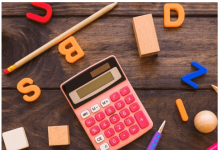It is important to know how to study to obtain good results, that is why we provide you with 10 infallible techniques to pass any exam.
- I discovered what study techniques you can use to make your next exams a success.
- Preparing in advance is essential for you to ensure that good grade you want to achieve.
- The better prepared you go to the exam, the less nerves you feel when facing it. Take advantage of these tips to study.
The same thing always happens when exam time approaches. The nerves are inevitable, you want to approve and want to do it with the highest possible note, but do not know how to study … Sos of those who wait last minute to start? If there is something that can assure you success in your next exams, it is to start studying in advance and using some of the most common study techniques .
Contents
What are the best study techniques?
There are many effective study techniques that you can use to prepare your next exams. Choosing any of them and starting it, will bring you much closer to the possibility of passing that exam that you have pending. And you can even get a good grade. Do you want to know what they are? We recommend you continue reading and also download the following free Ebook that we offer you from Universia.
10 techniques and tips to study:
-
Make exam drills : Exam simulations allow you to get closer to the type of questions that may appear on the test, and think about the answers beforehand . There are some times when you have the possibility to access exams from other years. Or even to the previous ones of the same year. In this way, it is possible to understand what format the teaching team generally proposes, giving the possibility of creating a simulation exam.
-
Make combinations :If you have many subjects to study you can divide your study days at different times that allow you to study them simultaneously . A space of time for one topic, another for another … like this until completing the study session. This way you will avoid forgetting the things you studied at the beginning. Reinforce this technique by handwriting the most important ideas.
-
Remember your voice – Record :Learn topics in the same way you learn a song. Don’t you hear it over and over again, noticing how the singer says it? Do the same with your songs, you can even record yourself saying the whole song and then listen to you. In this way you will be able to relate the questions to those topics that you have been listening to for so long . We already know that not everyone likes our recorded voice but you should try this technique.
-
Writing can be a great exercise : Writing by hand we mean. Visual memory is a very important factor, so the best thing you can do is exercise it. If you write the important ideas of each topic by hand on a sheet and also use colors or drawings, you will see the concepts more clearly. You can also complete it with information from books. In this way you will ensure the assimilation of the most important ideas and you can visualize them once you are in front of the exam.
-
Divide the stimuli : Assuming that you have 4 hours to study today and that the first three are devoted to the study of new topics and the last to your review. We recommend that the latter be separated from the other two. In that case you would be doubling the daily stimulus to two different study strips and that can help you fix knowledge since the review part can be done better rested than if you try it after 3 hours of reading or study.
-
Rewriting or explaining to someone else : It is a way of fixing what has been learned and at the same time noticing where we need to reinforce the study a little more. They are ways of self – evaluation , while at the same time perhaps we are helping someone else. Standing from the listener’s side of the explanation is also a good exercise, receiving the contents again and also correcting in case of error or doubt.
-
Make schemes / structures : These are better fixed in the brain, so they can be easier to remember.
-
Key associations : Previous knowledge about a topic allows linking it with new aspects. It is easier to retain information if it does not accumulate too much, therefore, it is convenient to review what you saw in the previous class before attending the next one . . Continuity has positive effects on memory because it strengthens connections.
-
Reading aloud : As we said before, involving different senses in the retention of information will help you to retrieve it later. Reading aloud implies that your eyes and ears are participating in the process to apply the data when necessary. You can even appeal to this method when you study with other people, so everyone concentrates their attention on the same subject.
-
Put what you’ve learned into practice: A knowledge sticks to your mind when you use it frequently . Internet exercises, conversations with native speakers in language learning, capturing images with the camera if you are learning photography, examples from previous exams and other tools are ideal for applying this tip.
Memorization techniques:
Although reading and repeating until you are fed up are the main or best-known memorization techniques, and have already been superseded by others and becoming obsolete, there are other memory-related study techniques that can be very effective :
-
Study techniques for people with visual memory : Use highlighters to differentiate the themes. The use of audiovisual material. Make memory cards or flashcards. Create concept maps and infographics. Eliminate distractions and take notes by hand to give them real attention.
Educational materials such as videos, documentaries, infographics, photos, maps, and charts that require sight to be used help digest information more quickly. In addition, messages are transmitted faster and global understanding improves . Involving the senses in the learning process makes it easier to recall a memory. Remember the famous saying: an image is worth a thousand words.
-
Push memory : Before jumping on the books and class notes, read the index of the topics and see how much you remember of each one . When you include the material in the review, it will be easier to understand it because your memory has already been forced to retrieve some of the information.
-
Handwriting : Writing ideas on paper requires more effort than doing it on a computer, because you invest more time and the brain participates more actively remembering the shapes of the letters, ordering the physical space of the sheet and adding created symbols for you to officiate as winks. It is a method fundamentally linked to understanding.
In addition to what refers to study techniques, there are other tips that we know and we want to offer you, that are related to the study and can help you to make the results of your exams much better. We leave them here below:








